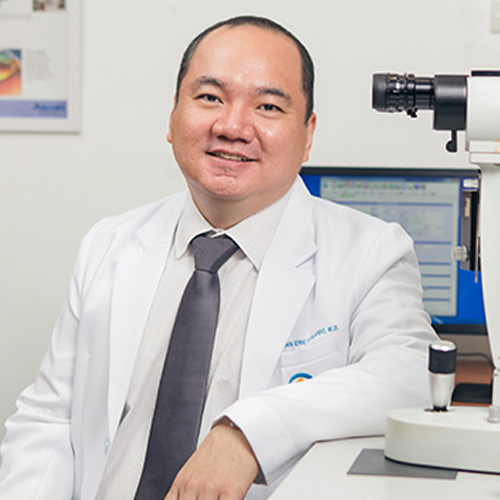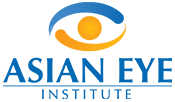
Strabismus is an eye condition in which the eyes are not aligned properly. One or both eyes may turn in (cross-eyed), out (wall-eyed), up (hypertropia) or down (hypotropia). This eye turn may be permanent, or it may be intermittent.
According to Asian Eye Pediatric Ophthalmologist, Adult Strabismus and Cataract Specialist Dr. Norman Fajardo, strabismus is usually associated with defective nerve system and eye muscle coordination. “Each eye has six external muscles that control the eye position and movement. These muscles must work together, so both eyes can focus on a single target.”
“Each eye sees from a slightly different angle, which means there are two different images that are sent to the brain. The brain then merges these images into one. When a person has strabismus, the eyes don’t work together and results in double vision. Because of this, the young brain suppresses the image from one eye, leading to a serious eye condition called amblyopia or lazy eye,” he adds.
Genetics may play a role in the development of strabismus. He says, “This means, if you have it, your family members are at greater risk of suffering from this condition. Although it can develop in adults, it is more common among children, especially those with disorders that may affect the brain like cerebral palsy, down syndrome and prematurity. In some cases, it may be caused by severe farsightedness, cataracts or an eye injury.”
The good news is that there are now several treatment options to improve alignment of the eye and restore binocular vision. Depending on the cause and extent of the condition, some may be prescribed to wear eyeglasses; use prism lenses; undergo orthoptics exercises or have eye muscle surgery. Often, those who’ve had surgery may need orthoptics exercises.
“Early detection and treatment of strabismus is essential for full visual development,” shares Dr. Fajardo, “An eye exam with a pediatric ophthalmologist or pediatric optometrist may be done at least once a year. We urge parents to get their children’s eyes checked if they notice their children who struggle in school may be having difficulties because of an undiagnosed eye problem.”
Children with strabismus will not simply outgrow the condition. He clarifies, “The condition may only get worse if the patient does not seek treatment. It may also affect their self esteem and create problems in socializing with other people.”
Asian Eye’s Pediatric Ophthalmology and Orthoptics and Adult Strabismus Services offer a comprehensive evaluation and management of strabismus in babies, children and adults. Asian Eye is located at Phinma Plaza, Rockwell Center, Makati with satellite clinics in TriNoma, Mall of Asia, Commercenter Alabang and UP Town Center. For inquiries and appointments, you may call 898-2020 or send an email to [email protected].






